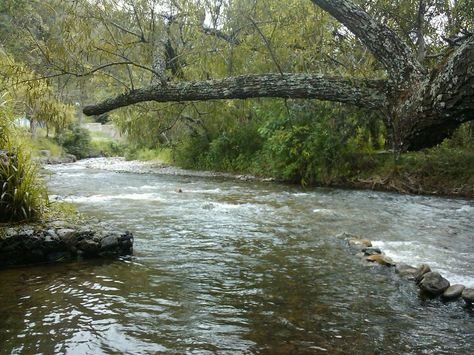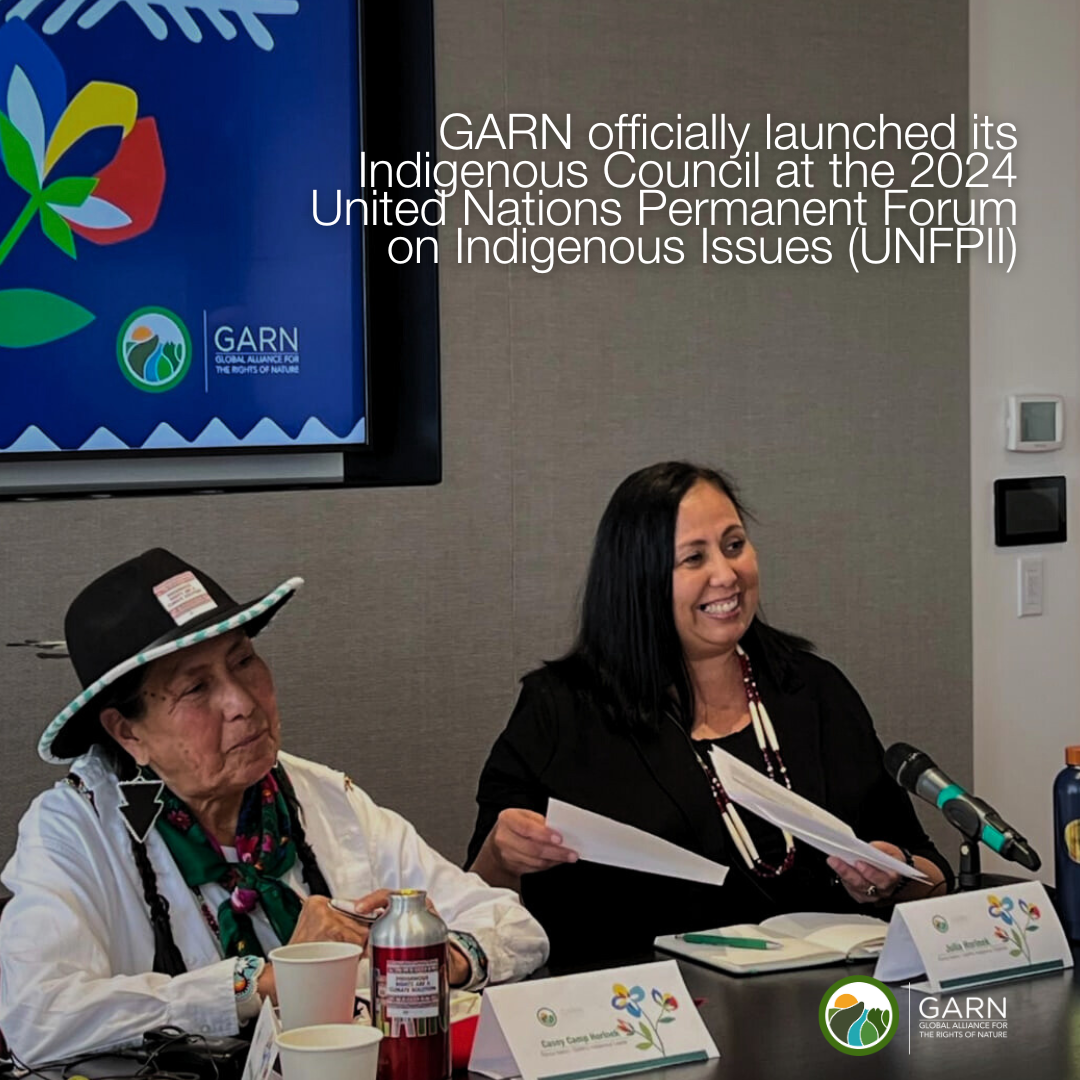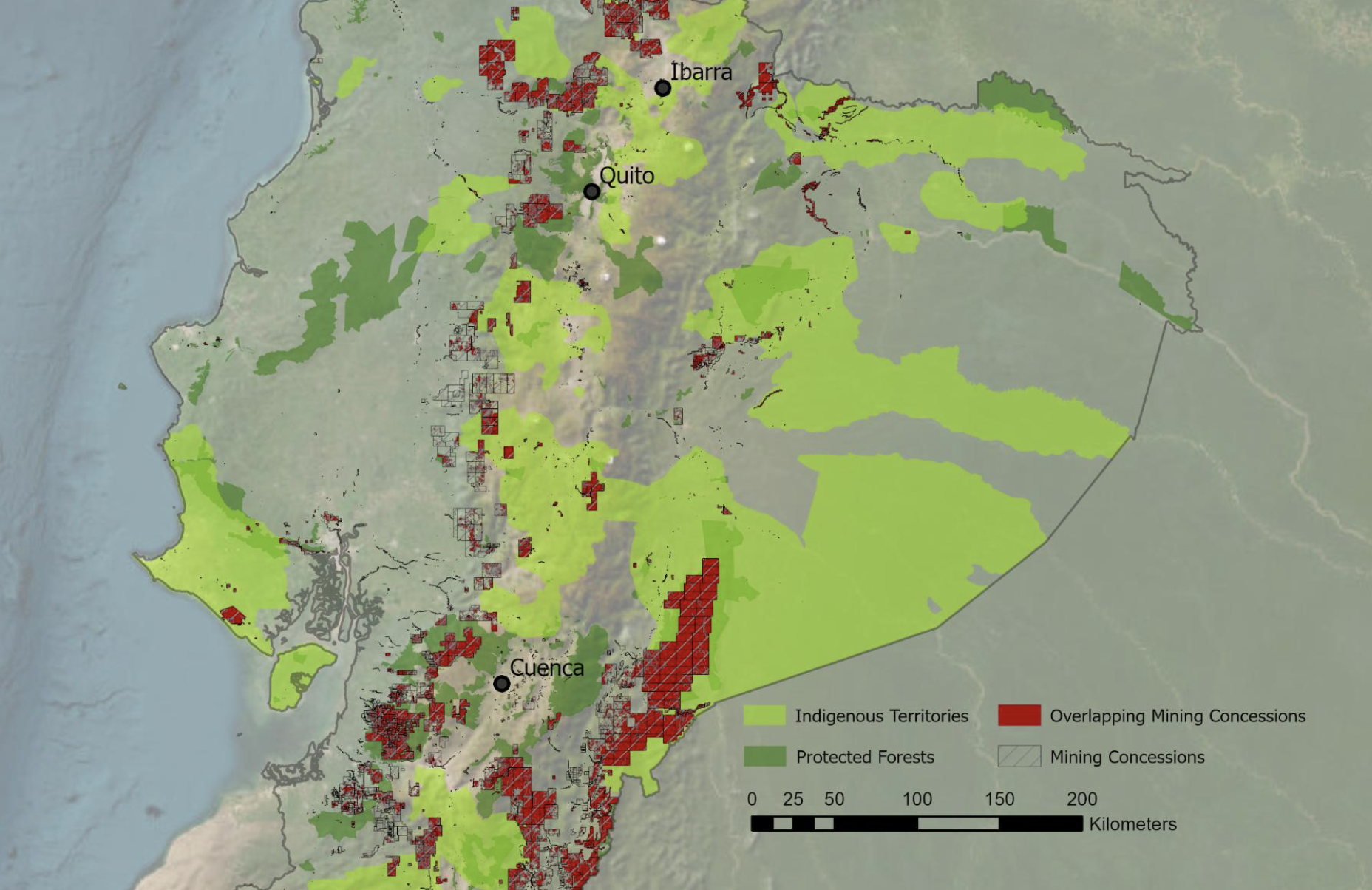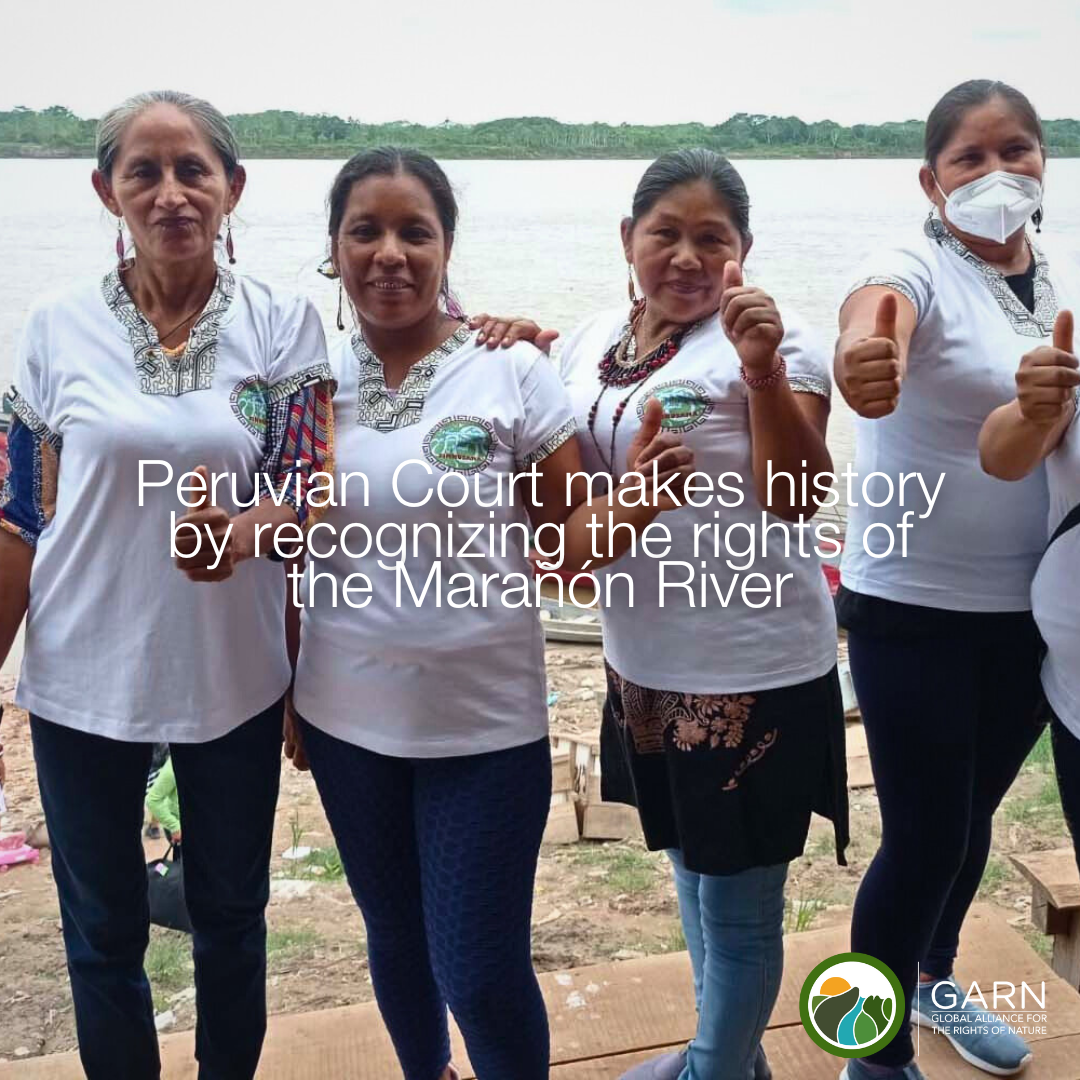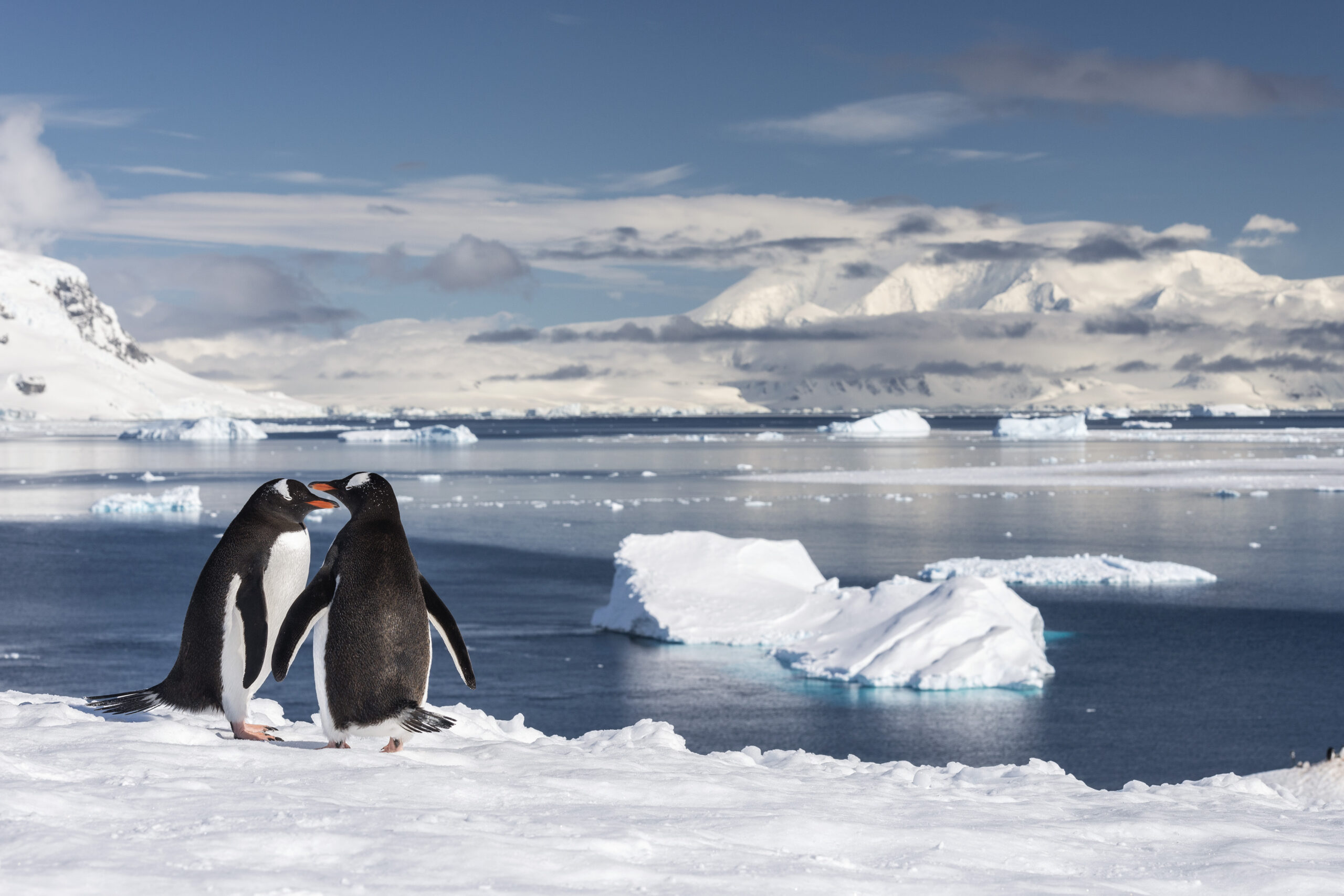by Natalia Greene
Global Alliance for the Rights of Nature, the Ecuadorian Coordinator of Organizations for the Defense of Nature and the Environment (CEDENMA) and Fundación Pachamama praise the first successful case of the rights of nature in Ecuador and congratulate Richard Frederick Wheeler and Eleanor Geer Huddle, the two people who demanded the observance of the rights of nature, protected in Article 71 of the Ecuadorian Constitution. The case was presented before the Provincial Court of Justice of Loja on March 30, 2011 with granting a Constitutional injunction in favor of nature, specifically the Vilcabamba River, against the Provincial Government of Loja.
The case was based on the problem caused by the project to widen the Vilcabamba-Quinara road, which was depositing large quantities of rock and excavation material in the Vilcabamba River. This project, which had been underway for three years without studies on its environmental impact, directly violated the rights of nature by increasing the river flow and provoking a risk of disasters from the growth of the river with the winter rains, causing large floods that affected the riverside populations who utilize the river’s resources.
Richard Frederick Wheeler and Eleanor Geer Huddle appeared before the Provincial Justice Court of Loja on March 30, 2011 and presented a constitutional injunction in favor of nature, particularly in favor of the Vilcabamba River, and against the Provincial Government of Loja. The discarded rocks, sand, gravel, and even trees directly disfigured the banks of the river, causing destruction of riverside land.
The Provincial Court of Loja Ruling
The Provincial Court of Loja ruled in favor of nature, particularly the Vilcabamba River, in the Granted Constitutional Injunction 11121-2011-0010 which establishes:
- The suitability and efficacy of the Constitutional injunction as the only way to remedy in an immediate manner the environmental damage focusing on the undeniable, elemental, and essential importance of nature, and taking into account the evident process of degradation;
- That, based on the precautionary principle, until it is objectively demonstrated that the probability of certain danger that a project undertaken in an established area does not produce contamination or lead to environmental damage, it is the responsibility of the constitutional judges to incline towards the immediate protection and the legal tutelage of the rights of nature, doing what is necessary to prevent contamination or call for remedy. Note, that we consider in relation to the environment that one act not only under the certainty of damage but its probability;
- The recognition of the importance of nature, raising the issue that damages to nature are generational damages, defined as such for their magnitude that impact not only the present generation but also future ones;
- That, using the principle of inversion of the burden of proof, the plaintiffs should not have to prove the existence damages but that the Provincial Government of Loja, as the entity that administers the activity and as the defendant, had to have provided certain proof that the widening the road would not affect the environment;
- That the argument of the Provincial Government that the population needs roads does not apply because there is no collision of constitutional rights of the population, nor is there any sacrifice of them, because the case does not question the widening of the Vilcabamba-Quinara road, but the respect for the constitutional rights of nature;
The Provincial Court of Loja establishes the following means of reparation:
- The Provincial Government of Loja must present within thirty days a remediation and rehabilitation plan of the areas in the Vilcabamba River and the populations affected by the lateral dumping and accumulation of rubbish material from the project, as well as comply with the recommendations of the environmental authority;
- The Provincial Government of Loja must immediately present the environmental permits for the construction of the road to the Ministry of Environment;
- The implementation of corrective actions such as: construction of security bunds to prevent oil spills in the soils around the fuel storage tanks and machinery; cleaning of the soils contaminated by fuel spills; implementation of an adequate road sign system; and, creation of a location to store the rubbish from the construction;
- The Provincial Government must comply with each and every one of the recommendations made by the Sub secretary of Environmental Quality of the Ministry of Environment;
- The creation of a delegation composed of the Regional Director of the Ministry of Environment and the Office of the Ombudsman from Loja, el Oro, and Zamora Chinchipe to provide follow up on the fulfillment of the ruling;
- The defendant must publically apologize on one-fourth of a page in a local newspaper for beginning construction of a road without the necessary environmental license.
Resolves: 1). To accept the appeal filed and revoke the contested sentence, declaring that the defendant is violating the right that nature has to be fully respected in its existence and maintenance of its vital cycles, structure, functions, and evolutionary processes.
Acknowledgements
The Global Alliance for the Rights of Nature, the Ecuadorian Coordinator of Organizations for the Defense of Nature and the Environment (CEDENMA) and Fundación Pachamama extend enormous congratulations to the signatories of the first favorable ruling in the name of nature in Ecuador and the world: Dr. Luis Sempértegui Valdivieso, Provincial Judge; Dr. Galo Arrobo Rodas, Interim Provincial Judge; and Dr. Galo Celi Astudillo, Associate Judge; as well as the Secretary of the Criminal Division of Loja, Dr. Dirce Guzmán Ordoñez.
We furthermore reject the first ruling on December 15, 2010 of the Interim Judge of the Third Civil Court of Loja in denying the protection action for lack of legitimacy of the case for presumably not having legal standing. This decision was strongly called to attention by the Provincial Court in 2011 for not conforming to the law.
We especially congratulate the management, work, and investigation of lawyer Carlos Eduardo Bravo González who legally advised the plaintiffs and brought the case before the Court.
Of course we also praise and applaud the work of Richard Frederick Wheeler and Eleanor Geer Huddle. They, through their work, investment of their time and resources, effectively achieved the tutelage of the Vilcabamba River, defending its rights and successfully promoting the first case of the implementation of the Rights of Nature in Ecuador and the world. We urge the rest of citizens and organizations to follow this good example of the defense of the Pachamama.
Annex of the photos of the case
-
- Recent photo showing the material dumped in the Vilcabamba River that lead to the presentation of the protection action in the name of nature.

-
- Due to the widening of the highway, material was dumped into the Vilcabamba River since 2009. Thanks to this photo that was sent to the Ministry of Environment, an inspection team was sent to the area. The blue line shows the natural flow of the river, while the yellow line shows the quantity of material dumped by the construction.

-
- This photo shows how the flow of the river was reduced to half, doubling its speed.
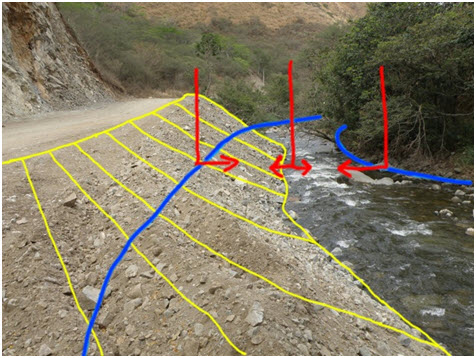
-
- In 2009, before the flood. Property of Richard Frederick Wheeler and Eleanor Geer Huddle.

-
- The red line represents the area lost within the Wheeler-Huddle property. The blue line shows the natural limit of the river before the flood provoked by the dumping of material, stones, and rubbish in the Vilcabamba River.

-
- The area flooded in 2010, approximately one and a half hectares (3.7 acres) of the most valuable land in the Uchima Neighborhood. Approximately 5,000 meters (16,404 feet) of the Wheeler-Huddle land and that of other people was affected in this flood. It is important to note that even in mid June, 2011, the Wheeler-Huddle family reports that the fight is not over. The damage to the river has not been remedied nor has the material been removed. In addition to the effort to file the case, the family has already spent US$43,000 to fix the areas affected on their property, building large walls along the river to prevent against future damages.

The Global Alliance for the Rights of Nature – garn.org
CEDENMA – cedenma.org
Fundación Pachamama – www.pachamama.org.ec
